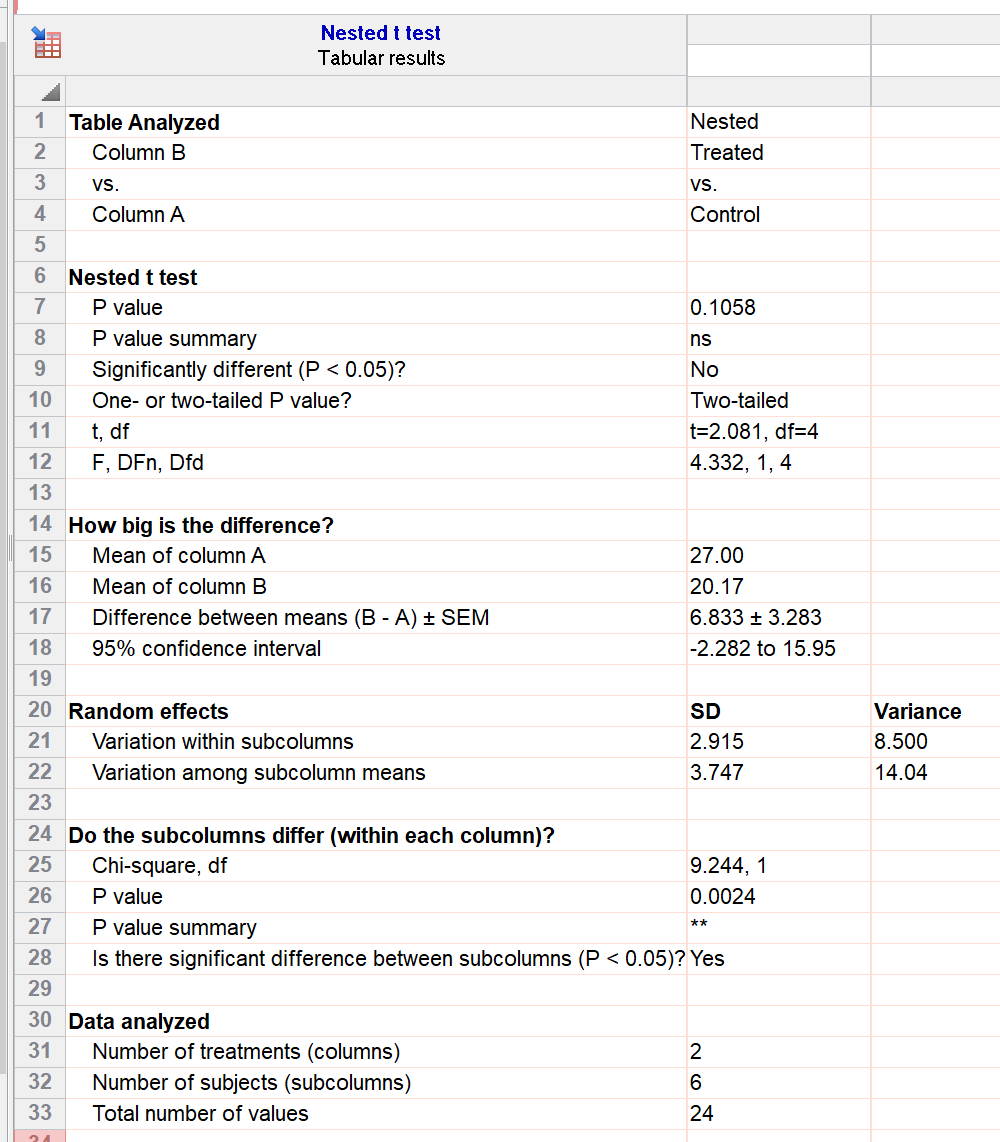

8 GB RAM for 8 to 16 million data cells.2 GB RAM for up to 2 million data cells in currently open Prism files.Prism 9 does not support 32-bit editions of Windows.įor comfortable performance and responsiveness, Prism requires the following amount of RAM:
#Graphpad prism t test windows

In this case a p value of < 0.0001 indicates a very significant difference, since this is less that our level of significance threshold of 0.05. The exact p value is given next to ‘ P value’. Interpretationīy looking at the ‘ Significantly different? (P<0.05)’ output, a ‘ Yes’ is given which essentially means that our results are significantly different from each other. GraphPad also gives you other descriptive information for each dataset (under the ‘ How big is the difference?’ section) and an indication for how effective the pairing between the datasets was (under the ‘ How effective was the pairing?’ section). Number of pairs – The number of pairs of data in the analysis.t, df – The t statistic and the degrees of freedom in the analysis.One- or two-tailed P value? – Whether a one- or two-tailed paired t test was performed.Significantly different? (PThese are useful to signify the level of significance on graphs, for example.

P value summary – A summary of the p value as represented by asterisks.All you need to do is to refer to the ‘ Paired t test’ section. The great thing about GraphPad Prism for statistical testing is that the output is very user friendly and self-explanatory. For our purpose we are going to leave everything in the default settings, but will select ‘ Descriptive statistics for each data set’ which will produce the mean and standard deviation for each group. If you want to change any other settings, such as the confidence level, go to the ‘ Options’ tab. Select, ‘ Paired t test (difference between paired values are consistent).’ The final option titled ‘ Choose test’ refers to whether your two datasets have equal variance. This will ensure a paired T-test is performed. Under ‘ Assume Gaussian distribution’, select ‘ Yes. In this case, select the ‘ paired’ option.Īlso, select whether the test will be a parametric or nonparametric test. The next window will ask you to specify whether the T-test is an unpaired (independent) or paired (dependent) test. Select the ‘ t tests (and nonparametric tests)’ analysis and make sure the two datasets are ticked on the right window. Here you need to tell GraphPad which test to perform. To perform a paired t-test, first go to ‘ Insert > New Analysis …’. “There is a difference in the number of viable cells before and after a 6-hour treatments with drug X”. “There is no difference in the number of viable cells before and after a 6-hour treatments with drug X”. The data is entered into two columns labelled ‘before’ and ‘after’. Then select ‘ Enter paired or repeated measures data – each subject on a separate row’ as the ‘ Enter/import data’ choice.Īlternatively, you can go to ‘ File > New > New Data Table & Graph …’.įor this tutorial, I will use an example of comparing the number of viable cells before and after a 6-hour treatment with drug X. Upon opening GraphPad Prism, select the ‘ Column’ type for the ‘ New Table & Graph’ option. To perform a paired (dependent) T-test in GraphPad Prism you will need to enter two groups of data into separate columns.


 0 kommentar(er)
0 kommentar(er)
